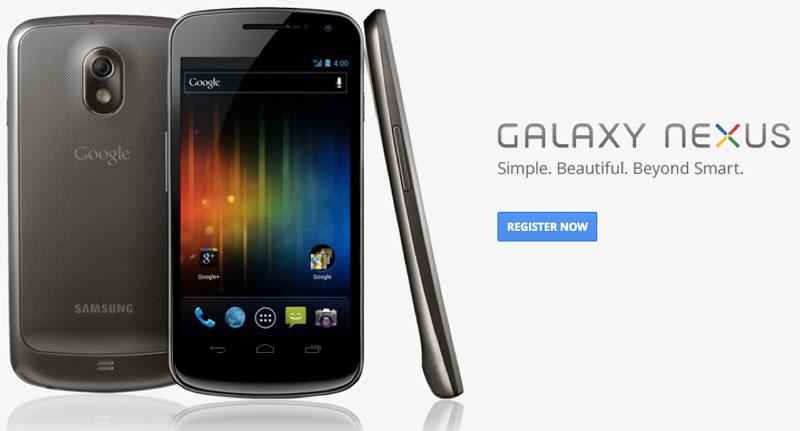Google, Sprint file briefs opposing injunction of Samsung Galaxy Nexus
District Court Judge Lucy Koh issued the injunction late last month on the grounds that the device likely infringes one of Apple's universal search patent. Though the district court initially denied a motion from Samsung to stay the ban while it sought an appeal, the Court of Appeals for the Federal Circuit did grant temporary relief at least until Apple responds to the appeal motion later this week.
Florian Mueller of FOSS Patents reported on Tuesday that Google, which makes the Android operating system and partnered with Samsung on the Galaxy Nexus, and wireless carrier Sprint have filed briefs opposing the sales ban.
In its filing, Google dismissed the alleged infringement as a "trivial patented aspect of a single application on the phone" and claimed there was no evidence that the search feature had "influenced sales." The Mountain View, Calif., company did admit that Apple's iPhone and the Galaxy Nexus "may compete for the same customers," but it challenged the assumption that buyers of either device would look for the same features.
However, Mueller called the claim a "bit of a stretch," noting that Google's claim that unified search is trivial has been undermined by the fact that the "allegedly unimportant feature" hasn't simply been removed to avoid possible infringement.
In fact, Google revealed last week that it will "imminently" release a software patch intended to remove the contested feature from the Galaxy Nexus. Android Central reported on Tuesday that a recent "security update" for another flagship Samsung smartphone, the Galaxy S III, removed the ability to search locally on the phone from the homescreen's search bar.
The move was presumably an attempt to preemptively avoid any sales bans on the Galaxy S III, since Apple is also seeking an injunction against the device.
As for Sprint, the wireless operator claimed in its amicus curiae brief that it would suffer harm from an injunction of the Galaxy Nexus. The company also cautioned that the practice of preliminary injunctions against smartphones should not be a regular occurrence in the "smartphone wars."
In an effort to demonstrate its fairness, the carrier asserted that it would make the same arguments even in the event of a Samsung sales ban against Apple's iPhone. According to the report, Sprint believes it is an "unwitting victim."
Sprint claimed that it takes "hundreds of people approximately 9-12 months" to see a smartphone through to market and an injunction would "substantially and irreparably" harm Sprint because it would leave a "void" in its smartphone portfolio.
Mueller remarked that he "can understand" Sprint and other carriers' interest in keeping devices on the market, but he also said that he is sympathetic to Apple's efforts for preliminary injunction because patent litigation in the U.S. is "so incredibly slow."
Both Google and Samsung showed off the Galaxy Nexus last October, touting it as the reference device for Android 4.0 Ice Cream Sandwich.
The rivalry between Apple and Samsung has spilled over into courtrooms in more than 10 countries. Samsung is also fighting a preliminary injunction in the U.S. against its Galaxy Tab tablet.
The current state of patent litigation has drawn the attention of the government. Reuters reported on Tuesday that the U.S. Congress will hold a hearing on whether injunctions should be allowed for standards-essential patent claims.
 Josh Ong
Josh Ong











 Malcolm Owen
Malcolm Owen
 William Gallagher and Mike Wuerthele
William Gallagher and Mike Wuerthele
 Christine McKee
Christine McKee
 William Gallagher
William Gallagher

 Marko Zivkovic
Marko Zivkovic









